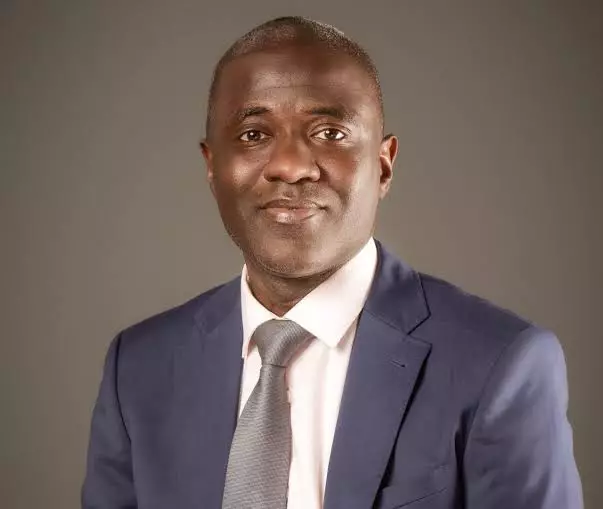NCC: The competition in the telecoms sector and its overall wellbeing, is underlined by the number of active telephone subscribers, which has increased from under 150.7 million in 2015 to 218.9 million in 2023, resulting in a tele-density growth of 115.70 per cent.
By Funmilola Gboteku, (NAN Features)
If any sector of the Nigerian economy prides itself as recording tangible achievements in recent times, certainly it must be the telecoms industry.
It is one of a few sectors where Nigerians have benefited from a fair price regime due to fierce competition amongst key players.
The competition in the telecoms sector and its overall wellbeing, is underlined by the number of active telephone subscribers, which has increased from under 150.7 million in 2015 to 218.9 million in 2023, resulting in a tele-density growth of 115.70 per cent.
Broadband penetration has also surged by 47.01 per cent as of July, translating to over 89.73 million subscriptions across 3G, 4G, and 5G networks, while general Internet subscriptions have soared to 159.5 million.
All these laudable achievements were due largely to the pivotal role of the Nigerian Communication Commission (NCC).
To cap it all, the NCC has licensed satellite earth stations, granted operating licenses for SpaceX Satellite and facilitated additional submarine cables like the Google 2,000km Equiano subsea Internet cable in 2022.
The telecoms landscape has now become so robust that telcos are listing on the Nigerian Exchange (NGX) Ltd., with MTN Nigerian becoming the first to be so listed.
However, as rosy as the telecoms industry’s outlook seems, it is still plagued by many challenges such as vandalism, securing equitable right of way (RoW) from government stakeholders, access to foreign exchange, multiple taxation and regulatory infractions.
To tackle these challenges, stakeholders in the telecom industry have urged the new Executive Vice Chairman of NCC, Dr Aminu Maida, to take necessary steps to overcome these obstacles in order to sustain the telecoms sector’s growth trajectory, which has been a key driver of Nigeria’s socio-economic development.
Mr Jide Awe, a Science, Technology and Innovation (STI) Policy Advisor and Founder, Jidaw.com, told the News Agency of Nigeria (NAN) that the Maida leadership must focus on ensuring broadband penetration, integrating unserved and underserved areas into the digital revolution in order to build an inclusive digital economy.
In his opinion, key to achieving broadband penetration will be top-notch spectrum management, including the efficient allocation and timely spectrum auctions.
“Maida should also encourage infrastructure sharing among telecoms operators to reduce costs and expedite the expansion of broadband coverage.
“In line with the National Broadband Plan, he should encourage the provision of tax incentives, financial benefits, special incentives, and encourage Public-Private Partnerships (PPPs) to stimulate private sector investment in broadband infrastructure.
“Addressing Right-of-Way (RoW) challenges with state governments is crucial to reducing the obstacles that have hindered the rollout of broadband in several states,” Awe stated.
He was emphatic that the NCC boss should prioritise stakeholder engagement and collaboration, involving stakeholders in telecoms, ICT, government, private industry, education and research.
He said: “Instead of simply giving directives, Maida should listen, engage, develop and implement strategies with stakeholders, not to stakeholders.”
This, Awe added, should be done to create an environment of trust, openness and inclusion in policy and regulatory processes.
According to him, there is a need for effective and independent monitoring and evaluation of broadband expansion efforts.
On enhancing infrastructure, Awe stressed the need to improve the quality of service and ensure the security of infrastructure up to the desired standards of a dynamic digital economy.
He stressed the need to address right-of-way charges, multiple taxation, insecurity of telecoms infrastructure and bureaucratic bottlenecks faced by operators.
According to him, addressing these challenges is essential for consumer protection to ensure quality of service standards are met and that consumers receive the promised level of service quality.
“I urge him to also invest in training and skill development to ensure Nigeria has sufficient local capacity for the planning, deployment, and maintenance of services and infrastructure in the telecoms sector.
“He should additionally ensure that telecoms operators comply with data protection and privacy laws and regulations, such as the Nigeria Data Protection Act (NDPA), to build trust and confidence among citizens in the adoption of broadband and telecom services,” he said.
Similarly, Chairman, National Association of Telecoms Subscribers (NATCOMS), Chief Adeolu Ogunbanjo, said there was need to set an agenda for the new NCC boss, noting that he inherited several unfinished projects from his predecessor.
Ogunbanjo said currently operators in the telecoms industry paid 49 different taxes and levies, stressing the need for the taxes to be reviewed in collaboration with Federal Inland Revenue Service (FIRS).
According to him, telecoms businesses attracted only 25.81 million dollars Foreign Direct Investments (FDI) in the second quarter of this year, compared to the 153.50 million dollars recorded in the same period last year.
Ogunbanjo said this represented a 494 per cent decline year-on-year,
and urged the NCC boss to set up a committee to liaise with FIRS to harmonise some of these taxes, because multiple taxation was detrimental to the growth of the industry.
On his part, Gbenga Adebayo, the Chairman, Association of Telecommunications Operators of Nigeria (ALTON) called for partnership with key stakeholders to secure executive and legislative actions on the declaration of telecoms infrastructure as Critical National Infrastructure (CNI).
Also setting agenda for the NCC boss, a telecommunications expert who declined to be named, said one of the issues affecting the sector was access to foreign exchange.
According to him, most of the equipment used in the telecoms industry are sourced abroad, which means that telcos will have to change naira to dollar to import them.
The telecoms expert, however, said the exchange rate of the naira to the dollar had skyrocketed over time, which was affecting the industry, stressing the need for the NCC boss and telcos to work with the Central Bank of Nigeria (CBN) to redress the situation.
“This means the CBN needs to work with telecoms regulators to address this issue so that operators can access dollar at a favourable rate,” he said.
Another worrisome issue which Maida’s leadership of NCC must confront headlong, according to the expert, is infrastructure deficit.
He said some parts of Nigeria did not have telecommunications services, noting that Maida needed to resolve the issue. “Digital economy should not be restricted to urban areas alone to avoid rural-urban migration.
“Looking at the urban areas in Nigeria, you will agree with me that they are overpopulated, and this is because those in the rural areas are migrating as well to feel the power of the digital economy.
“Also, that is why people from unserved areas move to places like Lagos, Abuja, Port Harcourt, Kano, among others.
“Once a place becomes over populated, obviously crime rate increases, hence the need for NCC and telcos to encourage those in the rural areas by taking digital services to them.”
He, however, said the reason why most telcos were not taking digital services to the rural areas was because it was not commercially viable.
On quality of service, the telecoms expert said alot needed to be done, attributing poor services to vandalism of telecoms infrastructure and illegal shutdown of base stations in some states.
He appealed to Maida to collaborate with stakeholders in the industry to initiate a national campaign, starting from the rural areas on the importance of base stations.
Maida himself is not short of ideas. Upon assuming office, he promised to focus on ensuring that all Nigerians had access to affordable and reliable broadband internet services.
Maida said the pursuit of improved quality of service on the networks would be one of his priorities, as well as supporting the vision of the Federal Government and the Ministry of Communications, Innovations, and Digital Economy.
He said: “Considering the fact that many people are going more digital and virtual in everything they do, the telecoms infrastructure is now under much stress.
“President Tinubu’s vision emphasises the need to build more robust broadband connectivity that will not only facilitate seamless digital transactions but also serve as the bedrock for e-governance and other socio-economic initiatives.
“As such, we would align with this aspiration to increase broadband penetration to 70 per cent and to cover 90 per cent of the population by 2025.
“Therefore, we need to build a reliable telecoms industry with impressive quality of service (QoS) indicators with quality of experience (QoE) as our watchword and ultimate goal.”
Maida said the issue of Right of Way and ensuring the security of telecoms infrastructure, among others would be resolved.
With Maida’s avowed commitment, and stakeholders’ collaboration, there are expectations that the NCC will, indeed, sustain the growth trajectory of the telecoms industry toward attaining the country’s digital economic transformation agenda. (NANFeatures)




